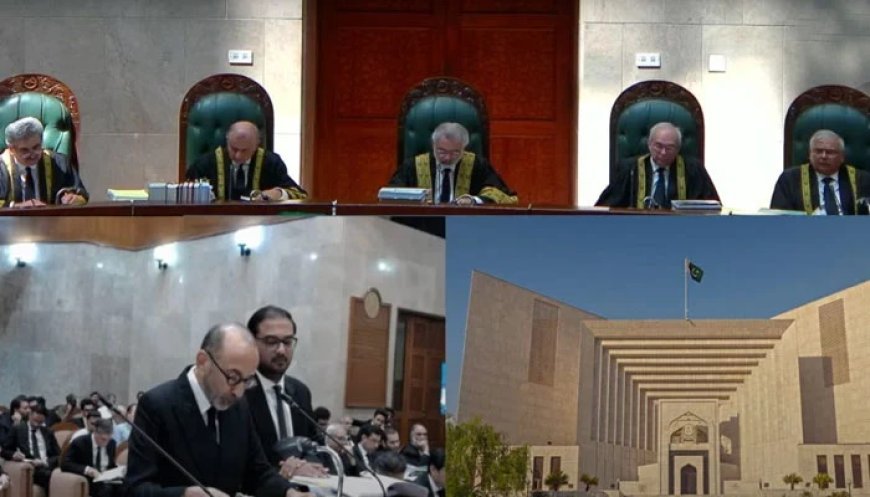SC Judge: Allocating Reserved Seats Contrary to Principle of Proportional Representation

1. "Whether SIC wins or loses this case, what will other parties benefit from it?" Justice Ayesha questions
"ISLAMABAD: Justice Ayesha A Malik of the Supreme Court of Pakistan emphasized today that reserved seats cannot be allocated contrary to the principle of proportional representation. Her remarks came during the hearing of a petition filed by the Sunni Ittehad Council (SIC), an ally of Pakistan Tehreek-e-Insaf (PTI), challenging the denial of reserved seats for women and minorities.
The 13-member full court, led by Chief Justice of Pakistan Qazi Faez Isa, is overseeing the proceedings. The bench includes Justice Syed Mansoor Ali Shah, Justice Muneeb Akhtar, Justice Yahya Afridi, Justice Amin-ud-Din Khan, Justice Jamal Khan Mandokhail, Justice Muhammad Ali Mazhar, Justice Malik, Justice Athar Minallah, Justice Syed Hassan Azhar Rizvi, Justice Shahid Waheed, Justice Irfan Saadat Khan, and Justice Naeem Akhtar Afghan.
Justice Ayesha questioned the implications for other parties, regardless of the outcome of SIC's case, stressing that reserved seats must adhere strictly to the principle of proportional representation.
Meanwhile, Justice Minallah emphasized the importance of ensuring representation for women and minorities in Parliament. He criticized past instances where the Supreme Court did not intervene despite similar issues affecting parties like Pakistan Muslim League-Nawaz (PML-N) and Pakistan Peoples Party (PPP), warning against repeating history.
Justice Minallah remarked that the court's decisions may lead to regret in the future, underscoring the need for learning from past mistakes.
Background on SIC Reserved Seats Issue:
Following the February 8 elections, PTI-backed independent candidates, aligning with SIC, sought reserved seats for minorities and women. However, the Election Commission of Pakistan (ECP) denied these seats to SIC for failing to submit candidate lists in time.
SIC challenged this decision in the Peshawar High Court (PHC), which upheld the ECP's ruling. In response, SIC's leadership, including Sahibzada Hamid Raza and the Khyber Pakhtunkhwa Assembly speaker, approached the Supreme Court seeking to overturn the PHC verdict and secure 67 women and 11 minority seats in the assemblies.
On May 6, a three-member SC bench temporarily suspended the PHC decision and referred the case to a larger bench for constitutional interpretation.
Recently, the ECP reiterated to the Supreme Court that SIC does not qualify for reserved seats due to its exclusion of non-Muslims from membership, citing non-compliance with candidate submission deadlines."

















































